5 Tips to Keep Your Garden Thriving this Summer
It’s time to transition our gardens from spring to summer. These 5 tips can keep your garden thriving this summer so you can have a great harvest.
Gardening in the spring is great. You have cooler days mixed with warmer days. There’s a sprinkle of rain here and there. For the most part, you plant and let nature take over.
But as the warmer months approach there are a few things you can do to keep your garden thriving. Because who wants to put in all the work of planting to have it fizzle out in the heat.
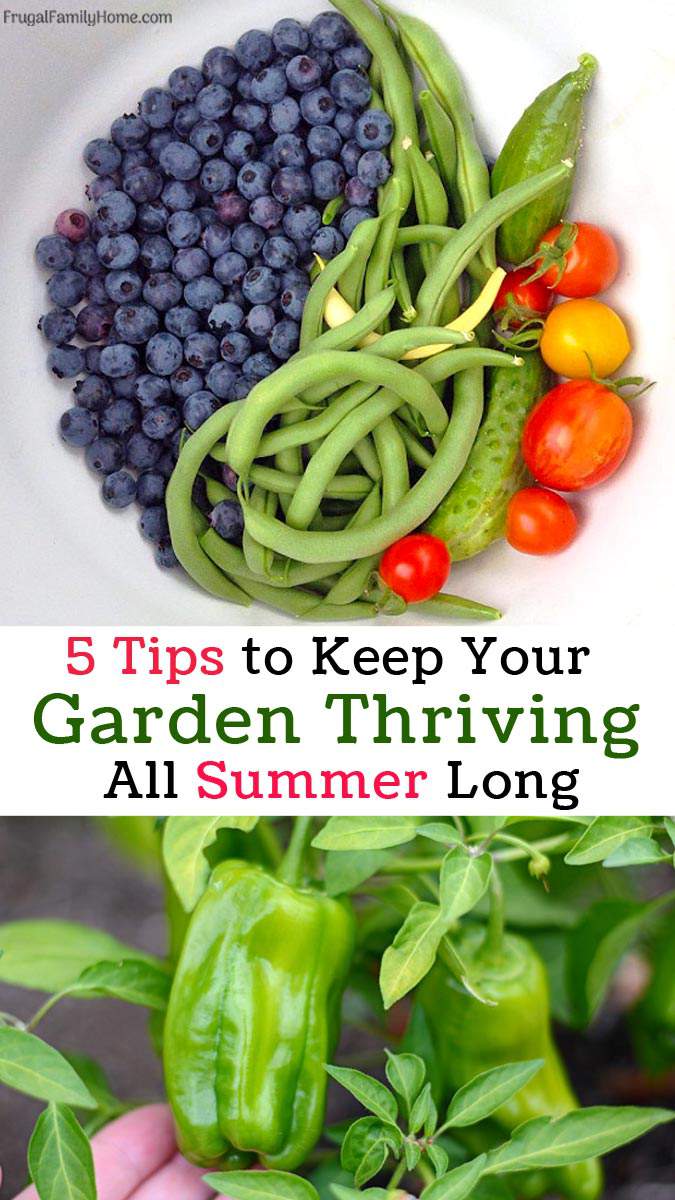
In our zone 8 garden spring is usually pretty mild. We have a few hot days here and there, mixed with rainy days and sunny days. Perfect weather for growing.
I plant and check on my garden every couple of days and it keeps growing and growing for the most part.
But as the summer months approach, I have to change my gardening approach too. As the weather changes so do the needs of the garden.
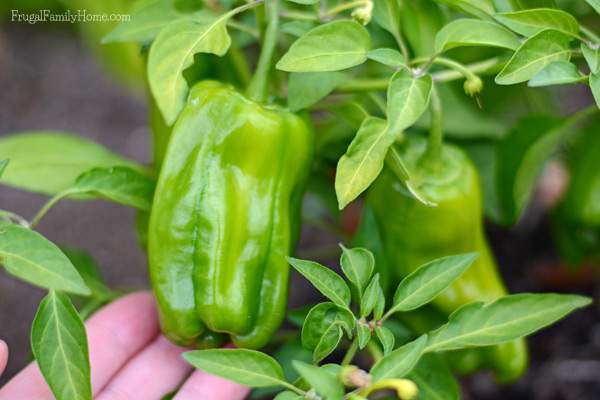
Some of the links in this post are my referral links. When you purchase through them I can make a little money at no extra cost to you. Thanks for your support in this way.
With the tips below you can keep your garden thriving in the summer.
How to Keep Your Garden Thriving in the Summer
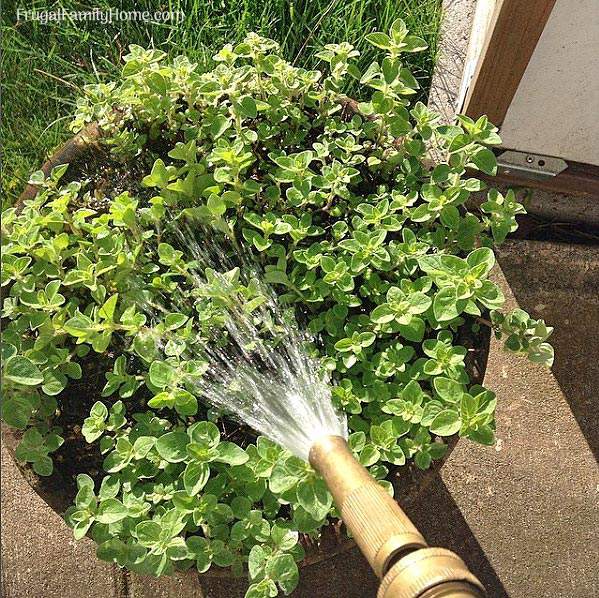
1. Change Your Watering Schedule
In the spring with rain that comes every few days, there isn’t much watering to be done. But as the rain gets less, you need to water more.
When the rain stops and summer heats up, I’ll change to watering more often and more deeply.
We have a sprinkler system set up in our raised beds. I hook up the hose, turn it on and come back in about an hour. To see how much I’ve watered.
To check the rate of water my garden is getting I place a few rain gauges in the garden. When they hit 1 inch of water, I’m done watering.
I also like having them in the garden so I can see just how much water the garden has gotten when it rains. So I know if I need to water or not.
I try to give my garden an inch of water a week. But I will check it every few days to make sure the soil under the surface is moist.
On really hot intense summer weeks I might need to water like this twice a week if the garden soil is drying out.
2. Keep the Water in the Soil with Mulch
When you water you want to make sure all that moisture is available for your plants to use and doesn’t just evaporate back into the air.
When you lay down a layer of mulch you can block the evaporation process and keep more moisture where you want it in the soil.
You can use organic mulch, such as grass clippings, straw or inorganic material like plastic and landscape fabric to help keep the water in the garden during those hot summer days.
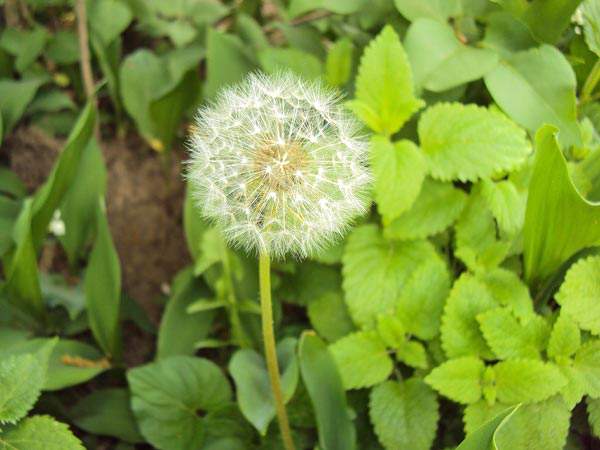
3. Keep Weeds Down in the Garden
Another way to keep your garden thriving is to keep the weeds down. When your garden has a lot of weeds they can steal the precious nutrients out of the soil and hog the water too.
Leaving your plants with less than they need to thrive. But there are a few things you can do to keep the weeds down in the garden.
If you have weeds, weed regularly. I don’t mean you have to spend a whole Saturday weeding, but instead, spend a few minutes as you are coming and going by the garden and pull a couple of weeds you see each time.
It can really cut down on the weeds in the garden.
Mulch to keep the weeds down. Mulching not only helps with water conservation but it can make a barrier to keep the weeds down too.
4. Feed Your Garden
To keep your garden growing well it needs the right nutrients. You can supply what your plants need using fertilizers, organic fertilizers or with organic matter.
In our garden, we add a nice deep layer of compost to the top of our garden soil. This year I purchased mushroom compost.
At first, I was unhappy because it contained lots of straw. It didn’t look like the mushroom compost I’d purchased in the past.
But to my surprise, it has worked well. It is feeding our garden and mulching the gardening at the same time.
I also like to use a pellet or granular organic fertilizer to boost my plant’s growth if I see the plants are not growing as well as I like.
These two ways to boost the nutrients in our garden work well to keep our plants thriving.
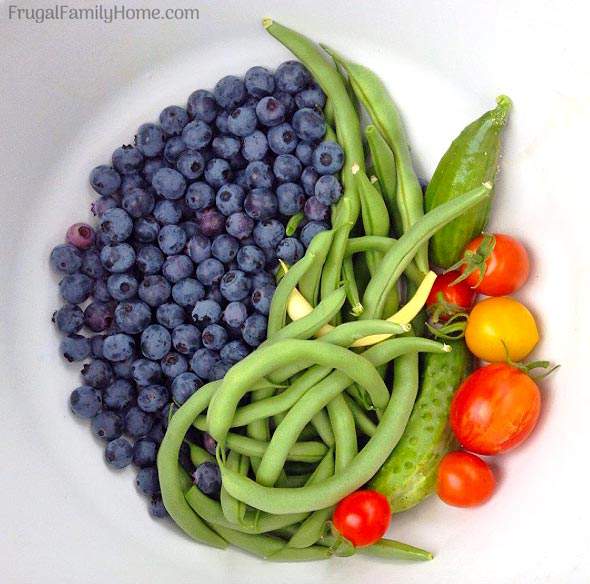
5. Harvest Regularly
As the growing season goes on, you have to allow time to harvest regularly. I usually look over our garden every morning to see what is ready to be harvested.
When you take the time to harvest regularly, your plants will keep producing. Plants like peas and beans need to be harvested to keep them producing well.
I know when I’m good about harvesting each day or every few days my plants keep flowering and keep producing.
Those are my 5 tips to keep your garden thriving this summer. I hope these summer gardening tips can help your garden keep producing for you well all season with the least amount of work for you.
If you need a way to track your garden, take a peek at my garden journal. It has every page you’ll need.
Need a Way to Track your Garden Progress? The Garden Planner is a great way to track your garden progress from year to year so you’ll know what worked in your garden and what didn’t.
Get the Companion Plants List
When you join the gardening email list, you'll not only get gardening tips sent to your inbox, you'll also get the companion plants list too.

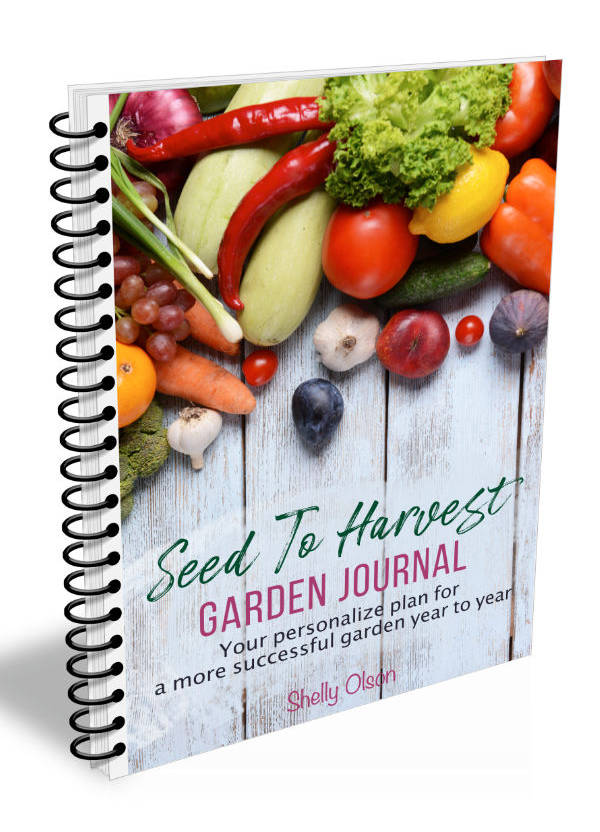

Hi Shelly,
Lots of great tips here. I like your rain gauge idea. I typically water every three days here in the summer unless we are have a dry or wet spell. It’s not an exact science and a rain gauge would be a be help. Thanks for the inspiration.
Thanks, Patti. We’ve found the rain gauge to be helpful. We’ve been getting quite a bit of rain this spring so it’s nice to be able to measure how much water the garden has really gotten. Some days it’s a small amount of water and it’s sprinkled all day long. Other days it will seem like we haven’t had much rain and the garden has gotten plenty of water. It makes it easier to tell how much water the garden is really getting.
It seems we skipped spring this year. We’ve had such weird weather, and now it’s like a furnace. For the first time, I’m watering my garden somewhat regularly. Usually, I can count on rain just as I need it. But we’ve had temps close to 100 and wind like you can’t imagine. Nothing likes it and the ground is parched and cracked. So I need to up my watering game, for sure. Thanks for the tips, Shelly. I need to put a few rain gauges in my garden.
Oh my Michelle, that is some extreme weather for late spring. I’m sure you need to water quite a bit with that kind of weather. The rain gauges are nice, we started using them last year and it’s worked out well.
Watering is the biggest thing in summer, isn’t it? I see so many people (IRL) watering too much, believe it or not. I’m constantly telling people to feel the soil with their finger like your tip – and not go just by what the top looks like. 🙂
It’s funny that you and I both have hot-weather tips and we’ve been stuck in a couple weeks of rain and 60s! 🙂
I know our spring has been wet and rainy this year. I got my peas in so late I thought for sure they would burn up in the heat of June but they are doing great with the mild temperatures and all the rain.
Nice tips Shelly! Watering is our biggest challenge here. I have a TON of area and our greenhouse that needs constant watering all summer.Thanks for the great tips!
I’m sure you have a lot of watering to do Diane. Keeping everything watered in the summer can be a full-time job, can’t it?
I bet it’s so nice to have fresh produce from your garden all summer long…it doesn’t seem like that much work either 🙂
I really enjoyed reading all of your smart tips. Putting a rain gauge in the garden is such a good idea. I’m definitely going to implement that into my own garden now. I’ve definitely added more mulch this year after the drought we had last year. Knowing I’m going to be traveling a bit, I hope this helps retain more moisture. Weeding is the worst during the summer, especially if you don’t keep to a schedule. I also try my best to remember to feed. Especially with annuals. If I don’t they all seem to poop out on me by mid-July. Harvest, harvest harvest, like you say, is super important! There’s nothing worse than coming home from a trip and seeing everything be way past it’s prime after all of that hard work! Awesome tips, definitely pinning as a reminder throughout the season!